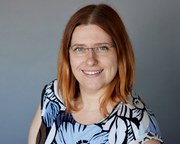Sustainable Systems Engineering (Master of Science)
The English-taught master’s degree program Sustainable Systems Engineering (SSE) with its international focus is addressed in particular to graduates with a bachelor's degree in engineering or natural sciences.
In-depth knowledge will be taught in the following areas:
- Energy Systems Engineering,
- Resilience Engineering,
- Sustainable Materials Engineering,
- Technology and Society.
Depending on the individual interests and focus, students can acquire and deepen their knowledge in these areas. The central objective of this master's program is to guide students to independent scientific work in these fields.
Requirements
- A Bachelor degree in engineering or science with a total of 180 ECTS and 3 years of duration at least (Asia and MENA regions: usually four years).
- Outstanding performance! The "cut-off grade" of the M.Sc. SSE is 2.5 on a German scale.
- 120 ECTS of your bachelor's degree must be engineering- and natural science-related subjects (such as Maths, Physics, Chemistry, Computer Science, Electronics etc.). This precondition is usually fulfilled for example by electrical and mechanical engineers, but may also be fulfilled by graduates of similar programs such as environmental engineering, process (chemical) engineering, materials science, and energy engineering. The admission committee will decide about the suitability of your previous degree (i.e. whether or not it has prepared you well) for the M.Sc. SSE.
- Advanced English language skills at the level of B2 on the CEFR (Common European Framework of Reference for Languages)
Basic information
| Total credits: |
120 ECTS (European Credit Transfer and Accumulation System) credits |
| Standard course length: |
4 semesters resp. 2 years |
| Language of instruction: |
English, options in German |
|
Course start: |
Winter semester (October) |
Tuitions and fees
|
German and EU nationals
The amount of 190 € is charged by the University per semester. |
Non-EU nationals
The amount of 1690 € is charged by the University per semester. |
Application and admission
|
Application: |
The application process and admission requirements are described in detail on the SSE course homepage. |
|
Admission: |
The SSE admission committee will check whether you fulfill the special admission requirements specified in the selection statute. Further information can be obtained from the program coordinator Ester Gnandt. Please note: Admissions requirements may change before the application period. |
|
Application deadline: |
May 15th for the following winter semester. It is not possible to apply for summer semester. |
Detailed and up-to-date information on application and admission can be found on the course homepage.
Note for bachelor’s degree candidates at the University of Freiburg: In order to enable a timely enrollment in the master's program, it is strongly recommended to submit the bachelor thesis by September 1st (for programs beginning in winter semester).
Curriculum / study plan
Science and engineering are basic tools to achieve a sustainable development, also in domains like ecology, economics and society. The English-taught master's program Sustainable Systems Engineering (SSE) with its international focus is addressed in particular to graduates with a bachelor's degree in engineering or natural sciences. It provides in-depth engineering skills in Energy Systems Engineering, Resilience Engineering and Sustainable Materials Engineering. Complementing interdisciplinary knowledge in natural resources and climate change, as well as technology and society is also taught during the two-year-program.
Find out more about the master's program SSE and see the recommended study plan.
The individual modules with learning objectives, content, responsible teachers, scope of work, types of examination and literature etc. are described in detail in the module handbook.
The exact structure of the course including an explanation of the compulsory and elective modules and elective options are outlined in the examination regulations.
Module handbook and exam regulations
Please note: Only the latest version is listed here. Older versions can be found in Module Handbooks and Exam Regulations under Studies and Teaching.
- Module handbook online version in HISinOne
- Module handbook pdf version
- Exam regulations (see § Satzungen, German only!)
- Exam regulations (English pdf version, this version is not binding and for convenience only!)
Check out our dates and deadlines for course registration or exam registration.
Career prospects
A master’s degree qualifies you for:
- a scientific career in research;
- senior positions in companies;
- conventional and renewable energies;
- as infrastructure operators for supply, mobility and energy;
- at planning offices for networks, urban planning and infrastructure planning; and
- with state authorities.
Contact
If you have questions about the admissions process or want to learn more about the benefits of the program, please contact us directly:
Technical / content-related questions regarding the M.Sc. SSE can be addressed to:
Dr. Mirko Schäfer
+49 761 203 54202
studienberatung [at] inatech.uni-freiburg.de
or

Beatrice Rodenbücher
+49 761 203 54193
studienberatung [at] inatech.uni-freiburg.de
General questions regarding the M.Sc. SSE including admission requirements and selection procedure can be addressed to:

Ester Gnandt - Programme Coordinator
Emmy-Noether-Straße 2
2. OG Nord
79110 Freiburg
+49 761 203 54010
study [at] inatech.uni-freiburg.de
Appointments upon request.
Testimonials
 |
Nick Harder, SSE Master student, in the short video "Learn more about SSE". |
 |
"SSE has been an exciting journey for me, and this excitement keeps me motivated to learn more. I am proud to be in the first batch of SSE. I like that all the professors are very good at what they do; it seems like a trivial thing to say, but I’ve learned more effectively from these courses than I ever have in the past." Puneeth Jakkula |
 |
"I would like to tell that the course is really amazing and interesting right now. From the 2nd semester, we get to choose our own specializations and subjects which is quite interesting and it feels like we are customizing our own Master's study. Furthermore, there are many interesting subjects to choose from. I am really loving the course and I also recommended to my friends to apply for this course." Deepak Rupakula |
|
|
"Full of possibilities to explore and practice sustainability, inspires students with decent cutting-edge knowledge and perspectives." Kuo-I Chang |
Highlights of the course
As an SSE master student, you have the opportunity:
- to work in cutting-edge research projects with internationally renowned professors,
- to benefit from the state-of-the-art facilities of a modern and European campus,
- to work through the uniquely close connection to the five Fraunhofer Institutes in Freiburg in renowned and innovative laboratories of these research institutes,
- to design your curriculum flexibly and according to individual interests,
- to live in one of the most popular and greenest student cities in Germany.
Smart, Micro, Green - Engineering in Freiburg
Smart – stands for robots that act independently, for computers that learn to interpret images or algorithms that become faster and smarter. Simply put, smart stands for computer science.
Micro – is meant literally here. The tiniest technical systems emerge that inconspicuously take on complex tasks in everyday life, medicine and industry. Without even knowing it, you are constantly dealing with microsystems. They make our lives healthier, safer, more comfortable, more versatile and, to say the least, easier.
Green – Freiburg is known worldwide for being the Green City. Since 2015, the Faculty of Engineering has been active from an engineering perspective with its own department for sustainability research. How can renewable energy be generated, fed into the grid and stored? How do we develop materials and systems that are produced and used in an energy- and resource-efficient way and that can adapt optimally to difficult environmental conditions or disasters?
Studying engineering in Freiburg always means that you benefit from all three areas of research, no matter which area you choose. Smart, micro and green technologies are becoming more and more in demand - acquire the necessary competencies to solve the social and technical questions of the future as engineers and computer scientists!
Further information
- Homepage of the course
- Homepage of the Department of Sustainable Systems Engineering (INATECH)
- Overview with some important (administrative) informations for new students

